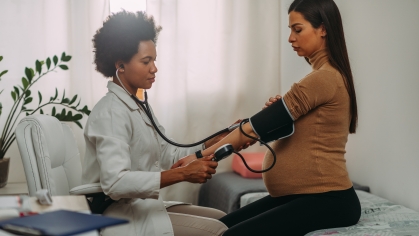
Center Initiatives & Programs
Current Projects
Use the carousel feature to view our many ongoing projects
Past Projects
Please review the projects below to learn more about our past projects.
-
Project Background:
The Substance Abuse and Mental Health Services Administration (SAMHSA) uses strategic initiatives to achieve its mission of reducing the impact of mental illness and substance misuse on individuals and communities. The Targeted Capacity Expansion: Medication Assisted Treatment Prescription Drug and Opioid Addiction (MAT-PDOA) program supports two of these initiatives, the Strategic Initiative on Prevention of Substance Abuse and Mental Illness and the Recovery Support Strategic Initiative. The New Jersey Division of Mental Health (DMHAS), as the Single State Agency (SSA) for substance use, was awarded a grant to implement MAT-PDOA as the Medication-Assisted Treatment Outreach Program (MATOP) in three communities in New Jersey. DMHAS seeks to expand access to medication-assisted treatment by providing funding for treatment for people who would not be able to access it otherwise, and educating the public, healthcare providers, and the community about medication-assisted treatment.Evaluation Activities:
The Center for Prevention Science was charged with the creation and selection of data collection materials, collection and management of data, and generation of monthly, quarterly, biannual and annual project reports. The evaluation team at Rutgers partners with DMHAS, and project-affiliated opioid treatment providers to carry out these activities. Activities and project outcomes reported on will include but are not limited to: outreach activities, data collection activities, participant demographics, and participant quality of life. -
The federally funded Prevent Prescription Drug/Opioid Overdose-related Deaths (PDO) Initiative in New Jersey
A collaboration among New Jersey Division of Mental Health and Addiction Services (DMHAS), Rutgers Center for Prevention Science, School of Social Work, and other partners including the Rutgers Division of Addiction Psychiatry and NJ State Police, the Prevent Prescription Drug/Opioid Overdose-related Deaths (PDO) Initiative was awarded by the Substance Abuse and Mental Health Services Administration to address the consequences of the increasing rates of opioid misuse. Utilizing real-time data to identify high need communities in New Jersey, the PDO initiative implements multi-strategy prevention interventions including community education to first responders, organizations, and community members; prescriber training using Centers for Disease Control and Prevention guidelines for prescribing for chronic pain; and expanded distribution of naloxone into high need communities throughout the state.
Dr. Kristen Gilmore Powell, associate director of the Rutgers School of Social Work's Center for Prevention Science (CPS), is the principal investigator of the sub-contract with DMHAS, along with Dr. Andrew Peterson, co-principal investigator. Dr. Powell and her team from CPS will engage in a comprehensive evaluation of this statewide project.
-
In 2017, the New Jersey Department of Human Services, Division of Mental Health and Addiction Services (DMHAS) was awarded a State Targeted Response to the Opioid Crisis (Opioid STR) grant from the U.S. Department of Health and Human Services, Substance Abuse and Mental Health Services Administration (SAMHSA). New Jersey implemented the grant as the State Targeted Opioid Response Initiative (STORI), which aims to address the growing nationwide opioid crisis by increasing access to treatment, reducing unmet treatment need, and reducing opioid overdose related deaths through the provision of prevention, treatment, and recovery activities for opioid use disorder (OUD). Programs supported by the STORI include:
- STORI fee-for-service treatment network that provides additional funding for opioid use disorder treatment
- Opioid Overdose Recovery Program (OORP), which provides recovery support and treatment linkages for individuals reversed from an opioid overdose
- Support Team for Addiction Recovery (STAR), a program delivered by a community-based group of case managers and recovery specialists which provide case management and recovery support to individuals with opioid use disorder
- Telephone Recovery Support (TRS), a peer-delivered statewide telephone recovery support service
- Family Support Centers (FSCs) to support family members of individuals with opioid use disorder
- Naloxone reversal information packets and naloxone training and distribution
- Trainings for health care practitioners on best practices for prescribing opioids, non-opioid management of pain, and recognizing addiction in primary care and pain management patients
- Trainings to expand the use of medication-assisted treatment in primary care and behavioral health care
The Center for Prevention Science is conducting the overall evaluation of the STORI, and is assisting DMHAS with SAMHSA-required data collection and performance measurement.












